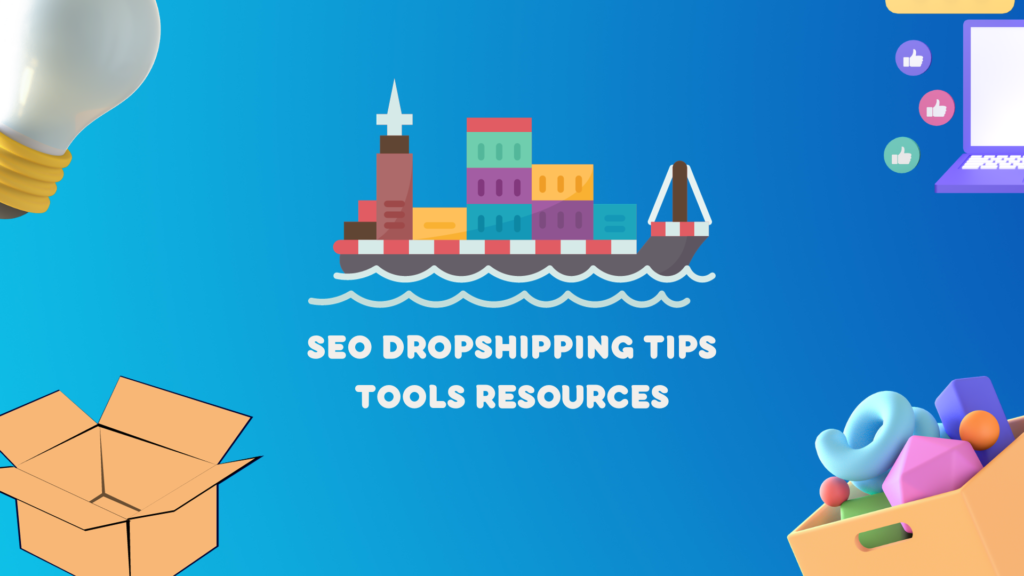Introduction to SEO
In today’s digital world, where competition is fierce, understanding and implementing effective SEO strategies can make all the difference in the success of your website. In this article, we will demystify the secrets behind SEO and provide you with valuable insights into how search engines work, how Google ranks websites and the different types of SEO. Let’s learn What is SEO in detail.

Why is SEO important?
SEO is the process of optimizing your website to increase its visibility and ranking on search engine results pages (SERPs). When done right, SEO can drive organic, targeted traffic to your website, resulting in higher conversion rates, increased brand awareness, and improved overall online presence. Without Search Engine Optimization, your website might get lost in the vast ocean of the internet, making it difficult for potential customers to find you.
By implementing SEO techniques, you can effectively reach your target audience, attract qualified leads, and ultimately grow your business.
How search engines work
To understand the importance of Search Engine Optimization, it’s essential to grasp how search engines work. Search engines like Google use complex algorithms to crawl and index billions of web pages, aiming to provide users with the most relevant and valuable search results. When a user enters a search query, the search engine analyzes its index to find the most relevant web pages that match the query.

Search engines consider various factors when determining the ranking of web pages, such as relevance, authority, user experience, and more. These algorithms are constantly evolving, so it’s crucial to stay updated with the latest Search Engine Optimization trends and strategies to ensure your website ranks high in search engine results.
How does Google rank websites
Google, being the most popular search engine, uses a sophisticated ranking system to determine the order in which web pages appear in search results. While Google’s exact algorithm is a closely guarded secret, we can gain insights into its ranking factors through years of Search Engine Optimization research and analysis.
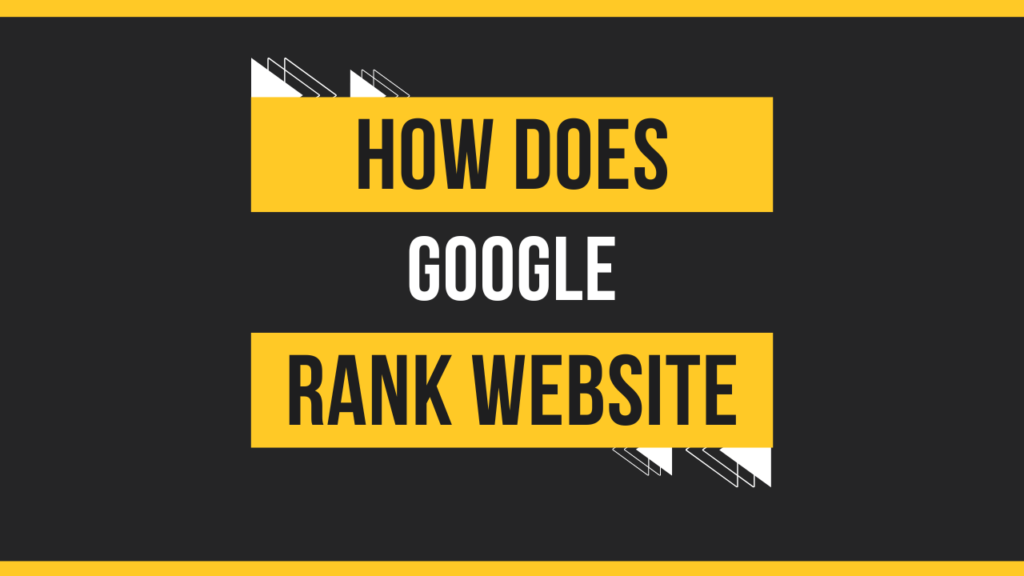
One of the fundamental factors Google considers is the relevance of a web page to a user’s search query. This is where keyword optimization plays a vital role. By strategically incorporating relevant keywords into your website’s content, meta tags, and headings, you can signal to Google that your page is highly relevant to specific search queries.
Another important aspect is the authority of a web page. Google considers the number and quality of backlinks pointing to a page as a vote of confidence from other websites. The more reputable and relevant the linking sites are, the higher your page’s authority will be in the eyes of Google.
User experience is also a critical factor in Google’s ranking algorithm. Factors such as page loading speed, mobile-friendliness, and overall website usability contribute to a positive user experience. By optimizing these elements, you can improve your website’s chances of ranking higher in search results.
Types of Search Engine Optimization
When it comes to Search Engine Optimization, there are three primary types: on-page optimization, off-page optimization, and technical SEO.
The basics of on-page optimization
On-page optimization involves optimizing various elements, including content, meta tags, headings, URLs, and more.
On page optimization is keyword research. By identifying relevant keywords that your target audience is searching for, you can strategically incorporate them into your website’s content. This helps search engines understand the context and relevance of your page to specific search queries.
Additionally, creating informative, engaging, and high-quality content is essential for on-page optimization. By providing valuable information and solving your audience’s problems, you can establish yourself as an authority in your industry and attract more organic traffic to your website.
The importance of keyword research
Keyword research is the foundation of successful Search Engine Optimization. By understanding these keywords, you can optimize your website’s content to match what your audience is searching for.
There are numerous tools available that can help you conduct keyword research effectively. These tools provide insights into search volume, competition, and related keywords, allowing you to choose the most relevant and valuable keywords for your website.
Off-page optimization and backlink building
While on-page optimization focuses on improving the elements within your website, off-page optimization involves external factors that impact your website’s visibility and ranking. One of the key components of off-page optimization is backlink building.
The more high-quality backlinks you have, the higher your website’s authority will be, which can positively impact your search engine rankings.
Building backlinks can be achieved through various methods, such as guest blogging, influencer outreach, content promotion, and social media marketing. By actively seeking opportunities to obtain backlinks from reputable and relevant websites, you can enhance your website’s visibility and authority in the eyes of search engines.
Technical SEO and website structure
Technical Search Engine Optimization involves ensuring that your website is crawlable, indexable, and easily understood by search engine bots.
A well-organized and logical website structure makes it easier for search engines to crawl and index your web pages. This includes creating a clear hierarchy with relevant categories and subcategories, utilizing descriptive URLs, and implementing breadcrumbs for easy navigation.
Additionally, optimizing website speed and performance is vital for technical SEO. By optimizing images, minifying code, and utilizing caching techniques, you can improve your website’s loading speed and provide a seamless user experience.
Search Engine Optimization best practices and tips
Now that we have covered the different types of Search Engine Optimization, let’s explore some best practices and tips to help you achieve optimal results with your SEO efforts.
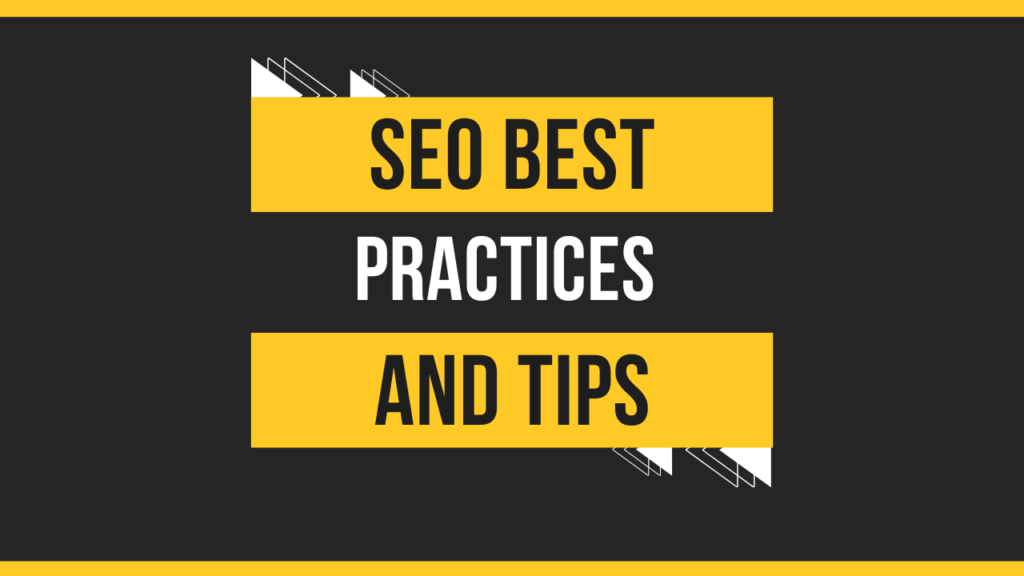
Create high-quality, valuable content
Content is king in the world of SEO. By creating high-quality, valuable content that addresses your audience’s needs and provides solutions to their problems, you can establish yourself as an authority in your industry and attract organic traffic to your website. Ensure that your content is well-researched, engaging, and optimized with relevant keywords.
Optimize your website for mobile devices
With the increasing use of smartphones and tablets, it’s essential to ensure that your website is mobile-friendly. Google considers mobile-friendliness as a ranking factor, and mobile users now constitute a significant portion of internet traffic. By optimizing your website for mobile devices, you can provide a seamless user experience and improve your chances of ranking higher in mobile search results.
Build high-quality backlinks
Backlinks play a crucial role in Search Engine Optimization, as they signal to search engines that your website is trusted and authoritative. This can be achieved through guest blogging, influencer outreach, content promotion, and social media marketing.
Search Engine Optimization tools and resources
Search Engine Optimization Tools and Resources: 10 Essential Tools for Optimizing Your Website
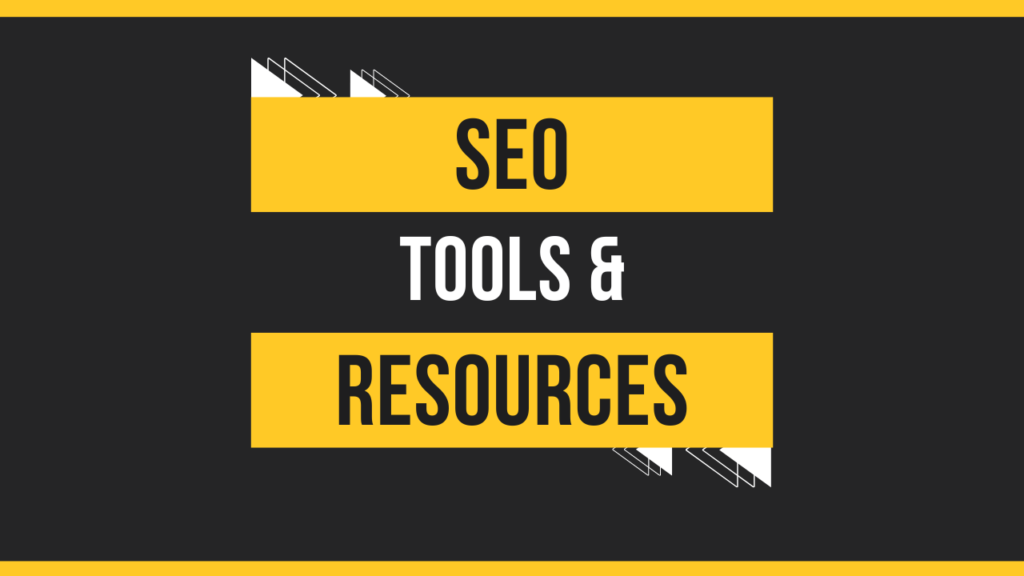
- Google Analytics: This free tool allows you to track and analyze website traffic, user behavior, and conversions. It provides valuable insights into your website’s performance and helps you make data-driven decisions to improve your SEO efforts. With Google Analytics, analyzing the data, identifying trends, patterns, and areas for improvement. This tool is a must-have for any website owner or digital marketer looking to enhance their SEO strategy.
- Google Search Console: This tool helps you monitor your website’s presence in Google search results and provides valuable data on keywords, clicks, impressions, and crawl errors. With Google Search Console, you can gain insights into how your website is performing in organic search and identify any issues that may be hindering its visibility. By regularly monitoring and optimizing your website based on the data provided by this tool, you can improve your search engine rankings and attract more organic traffic.
- SEMrush: It is an SEO tool that offers features like competitor analysis, keyword research, site auditing, and backlink analysis. It provides valuable insights to optimize your website and stay ahead of your competitors. With SEMrush, you can uncover the keywords your competitors are ranking for and identify new opportunities to target. You can also analyze your backlink profile and identify any toxic or low-quality links that may be affecting your website’s SEO performance. Additionally, the site auditing feature helps you identify and fix any technical issues that may be impacting your website’s visibility in search results.
- Moz Pro: Moz Pro is another popular SEO tool that offers features like keyword research, rank tracking, site auditing, and link building. It also provides valuable insights into your website’s domain authority and helps you improve your search engine rankings. With Moz Pro, you can track your keyword rankings and monitor your website’s performance over time. The site auditing feature helps you identify and fix any on-page SEO issues that may be affecting your website’s visibility. Additionally, the link building feature helps you find opportunities to acquire high-quality backlinks, which can significantly impact your website’s authority and rankings.
- Ahrefs: Ahrefs is a powerful SEO tool that offers features like backlink analysis, competitor analysis, keyword research, and rank tracking. It provides valuable insights to optimize your website’s backlink profile and improve your search engine rankings. With Ahrefs, you can analyze your competitors’ backlink profiles and identify opportunities to acquire similar high-quality backlinks. You can also track your keyword rankings and monitor your website’s performance in search results. The comprehensive backlink analysis feature helps you identify any toxic or low-quality backlinks that may be negatively impacting your website’s SEO.
- Yoast SEO: Yoast SEO is the most popular WordPress plugin Yoast helps to optimize your website’s on page SEO. It provides real-time feedback on keyword usage, readability, meta tags, and more, making it easier to optimize your content for search engines. With Yoast SEO, you can ensure that your content is properly optimized for your target keywords. The plugin provides suggestions and guidelines to improve your content’s readability and structure, helping you create SEO-friendly content that resonates with both search engines and users.
- Screaming Frog: It is a website crawler that helps to identify technical SEO issues on your website. It crawls your website and provides valuable insights into issues like broken links, duplicate content, and missing meta tags. With Screaming Frog, you can conduct a comprehensive audit of your website’s technical SEO elements. The tool helps you identify any issues that may be negatively impacting your website’s visibility and user experience. By fixing these issues, you can ensure that your website is properly optimized for search engines and provides a seamless browsing experience for users.
- Google Keyword Planner: This free tool by Google helps you find relevant keywords for your website. With Google Keyword Planner, you can conduct keyword research and identify the keywords that are most relevant to your website and target audience. The tool provides insights into search volume, competition, and suggested bid, allowing you to prioritize your keyword targeting efforts and optimize your content accordingly.
- BuzzSumo: BuzzSumo is a content research tool that helps you find popular and trending content in your industry. It allows you to analyze the performance of competitors’ content and identify opportunities to create high-quality, shareable content. With BuzzSumo, you can gain insights into the type of content that resonates with your target audience. By analyzing the performance of competitors’ content, you can identify gaps and opportunities in the market and create content that stands out and attracts engagement. This tool is invaluable for content creators and marketers looking to enhance their content strategy and drive more traffic to their website.
- Google PageSpeed Insights: This tool helps you analyze the performance of your website and provides suggestions to improve its speed and user experience. A fast-loading website is crucial for SEO, as it improves user satisfaction and search engine rankings. With Google PageSpeed Insights, you can assess your website’s performance and identify any issues that may be affecting its speed. The tool provides suggestions and recommendations to optimize your website’s performance, such as compressing images, minifying CSS and JavaScript files, and leveraging browser caching. By implementing these suggestions, you can enhance your website’s speed and user experience, leading to improved SEO performance.
By utilizing these SEO tools and resources, you can optimize your website, improve its visibility in search engine results, and attract organic traffic. Remember, SEO is an ongoing process, so regularly monitor and optimize your website to stay ahead of the competition and achieve long-term success. With the right tools and strategies in place, you can drive more targeted traffic to your website and increase your chances of converting visitors into customers.
Do’s and Don’ts of SEO
While implementing effective SEO strategies can significantly improve your website’s visibility and ranking, it’s essential to be aware of some common do’s and don’ts to avoid any potential pitfalls.
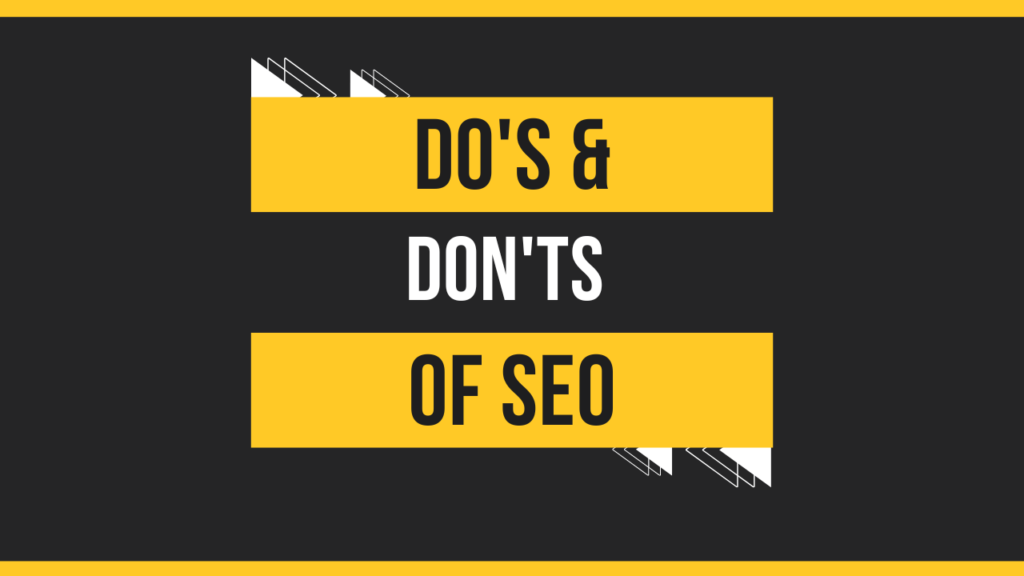
Do’s of SEO
- Do create high-quality, valuable content that addresses your audience’s needs and provides solutions to their problems.
- Do build high-quality backlinks from reputable and relevant websites in your industry.
- Do regularly update and optimize your website to keep it fresh, relevant, and user-friendly.
- Do monitor your website’s performance using analytics tools and make data-driven decisions to improve your SEO efforts.
Don’ts of SEO
- Don’t engage in keyword stuffing, as this can negatively impact your website’s ranking.
- Don’t purchase backlinks or engage in black hat SEO techniques, as this can result in severe penalties from search engines.
- Don’t ignore technical SEO aspects, such as website speed, crawlability, and indexability.
- Don’t neglect the importance of user experience, as this can negatively impact your website’s ranking and conversion rates.
- Don’t expect immediate results with SEO; it requires time, effort, and consistent optimization to see significant improvements.
By following these do’s and don’ts, you can ensure that your SEO efforts are effective, ethical, and aligned with best practices.
Conclusion: The power of SEO for your website
In conclusion, SEO is a powerful tool that can significantly impact the success of your website. By understanding the fundamentals of SEO, how search engines work, and implementing effective strategies, you can improve your website’s visibility, attract organic traffic, and grow your business.
Remember, SEO is an ongoing process that requires continuous optimization and adaptation to keep up with changing algorithms and user preferences. By staying updated with the latest SEO trends, utilizing valuable tools and resources, and following best practices, you can unlock the secrets of SEO and take your website to new heights.
So, what are you waiting for? Start implementing SEO strategies today and unlock the full potential of your website!
FAQs about What is SEO
What is SEO?
Why is SEO important?
What are the do’s of SEO?
What are the don’ts of SEO?
What are some effective SEO strategies?
More FAQs on what is SEO
How do search engines determine website rankings?
Can I do SEO on my own, or should I hire an expert?
How often should I update my website for SEO purposes?
Success of my SEO efforts?
What is SEO? Manglastubh By Ankit Akolkar. Search on Google Free Online Courses.

Welcome to Manglastubh By Ankit Akolkar. Manglastubh website is designed and developed for all kinds of Knowledge-Based Blogs and Articles. Everyone will gain knowledge over here from this website.


